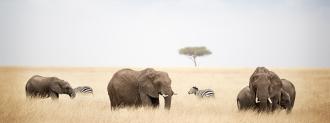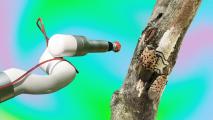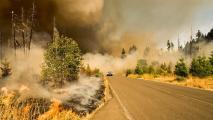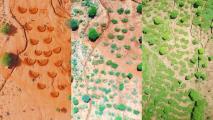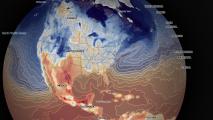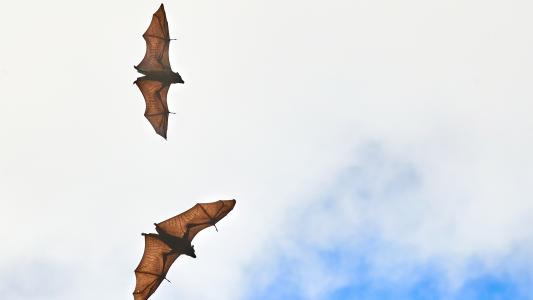A rise in the temperature of water fowl in China (the subtle heat signature of a potentially devastating bird flu outbreak) is detected by featherlight sensors and relayed 254 miles above the Earth, to the International Space Station, circling the planet at 17,000 miles per hour — potentially giving humanity a head start in tracking animals that are brewing the next pandemic.
This scenario sounds like science fiction, but it could soon be a reality, thanks to a suite of new wildlife surveillance tools.
With an antenna and array of sensors on the International Space Station and new tiny bio-trackers, scientists will soon be tracking animals from space, opening up new possibilities in research.
The project — the International Cooperation for Animal Research Using Space or ICARUS, which one hopes the acronym creator received a bonus for — aims to deploy both terrestrial and space-based technologies to begin tracking animals on a global scale.
“With skin temperature (sensors) we can see in the ducks in China whether the next avian influenza is starting,” Martin Wikelski, the ICARUS project director, told the New York Times.
Managed by Wikelski, at Germany’s Max Planck Institute, and run in partnership with the German and Russian space agencies, ICARUS officially began testing in March 2020.
“It’s a new era of discovery,” Walter Jetz, a professor of ecology and evolutionary biology at Yale who is working with ICARUS, rhapsodized to the Times.
“We will discover new migration paths, habitat requirements, things about species behavior that we didn’t even think about. That discovery will bring about all sorts of new questions.”
ICARUS uses a blend of new and tried and true technology for tracking animals. The space station’s sensors were installed by spacewalking cosmonauts in 2018; after being flipped on in March 2020, the various tools both in the heavens and here with us will be tested, the project’s site reports.
According to the Times, the system will be able to track not only location, but also the environment and the animal’s physiology. Solar and GPS units will be joined by new bio-loggers designed specifically for tracking animals with ICARUS.
These tracking devices are light — less than three grams — and will be getting lighter; their small size means that researchers can place them on animals, like insects, that could not support a bio-logger before. They can measure speed, position, temperature, and location — enough telemetry to make a Formula 1 team jealous — and relay it all back up above.
ICARUS data will be open to all researchers, the Times says, the data able to be downloaded remotely, and most of it available to anyone — scientist or not.
Various projects include revealing the mysterious — and potentially pandemic-inducing — migrations of fruit bats, the “lost years” of sea turtles in their nurseries, stopping elephant poaching, and protecting the flight paths of birds along the East Asia-Australia migratory path.
Tracking animals’ movements and physiology could be a powerful predictive tool for zoonoses, while understanding their migration routes and habitats could inform conservationists on where new protected areas are required — especially as climate change impacts animal behavior.
“These animals are providing really important information, maybe for (the) survival of humankind,” Wikelski told the Times.
“We should have this information.”
